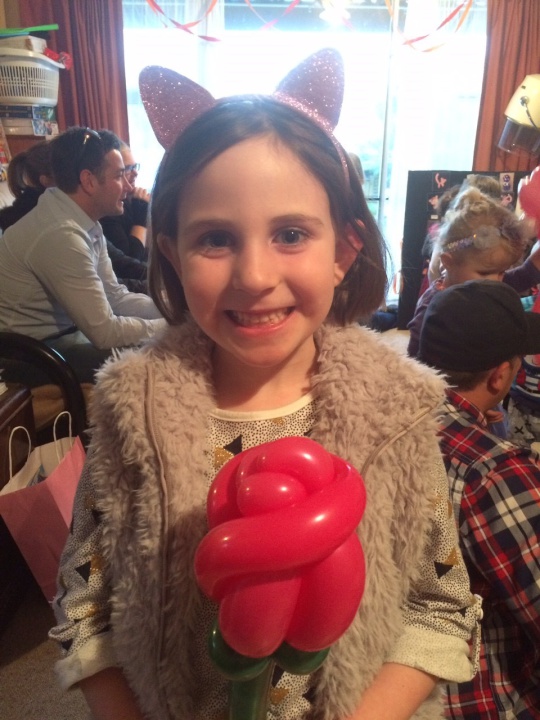7 year old girl ageing prematurely
7 year old girl ageing
prematurely
Seven-year-old
Gabrielle Stephens from Nelson is one in a million. She
lives with an extremely rare and incurable genetic disorder
called Dyskeratosis Congenita (DC) that affects only 7,000
people worldwide.

Gabrielle is sharing her special story to promote better understanding about rare diseases and the impact they have on patients and families, and to mark International Rare Disease Day on 28 February.
Chief Executive of New Zealand Organisation for Rare Disorders (NZORD), Dr Collette Bromhead says more than 377,000 Kiwis are affected by a rare disorder.
“The number of New Zealanders who have a rare disease is higher than those suffering from diabetes. There are over 7,000 different rare conditions, and while these diseases are uncommon, collectively they affect 8% of our population.”
Gabrielle’s mum Megan says “Gabby is amazing, she just gets on with things and doesn’t ever let her disease stop her from doing anything she sets her mind to. She’s an inspiration to us all.
“Like other kids her age, she goes to school and works really hard to keep up with her peers but gets frustrated as her body tires easily. She loves playing summer soccer, swimming, and has recently learned to ride a two-wheeler bike.”
Gabrielle has been in and out of hospital since she was four when her symptoms started appearing. Her disease causes her cells to deteriorate faster than other children which means her organs age quicker than everyone else.
“Her illness has had a huge impact on her life. Gabby had a bone marrow transplant a few weeks after her fifth birthday, she has nail dystrophy which can be extremely painful, thin and delicate skin, constant tearing of both eyes, extremely low bone density and regularly suffers from joint pain, particularly around the hips, groin, knees and ankles,” says Megan.
“NZORD advocates for and supports families like Gabrielle’s,” says Dr Bromhead. “We help patients negotiate the many common challenges they face from difficulty in getting a diagnosis to campaigning for specialist medicines and treatments.
“There needs to be greater awareness about rare diseases and a focus on ensuring patients receive access to timely treatments to ensure these patients have a better quality of life.”
The family will be going to the United States in September to attend the bi-annual Dysteratosis Congenita Family Education Summit held at Camp Sunshine in Portland, Maine. They will meet with doctors who specialise in DC and other telomere biology disorders, along with meeting other families experiencing the same challenges. Gabrielle has also been accepted into a research study so will be going to Boston for a day of assessments.
Read Gabrielle’s story and find out what you can do to help at rarediseaseday.org.nz


 Hospice NZ: Sustainable Funding For Hospices
Hospice NZ: Sustainable Funding For Hospices David Hill - LDR: Surge In Young Parents’ College Enrolments
David Hill - LDR: Surge In Young Parents’ College Enrolments NZEI Te Riu Roa: School Lunches - Give Schools Option To Use In-School And Community Providers Immediately, Union Says
NZEI Te Riu Roa: School Lunches - Give Schools Option To Use In-School And Community Providers Immediately, Union Says University of Auckland: Billion-dollar Business Lessons From Kiwi Entrepreneur
University of Auckland: Billion-dollar Business Lessons From Kiwi Entrepreneur NZ Veterinary Association: NZVA Celebrates Welcome Additional Support From Veterinary Nurses
NZ Veterinary Association: NZVA Celebrates Welcome Additional Support From Veterinary Nurses Michael King Writers Centre: New Zealand’s National Writer-Residency Organisation Announces Its 2025 International Residency With Australia
Michael King Writers Centre: New Zealand’s National Writer-Residency Organisation Announces Its 2025 International Residency With Australia